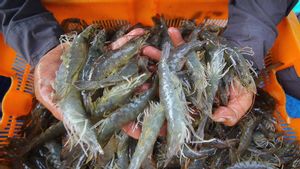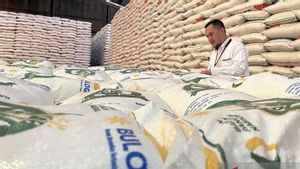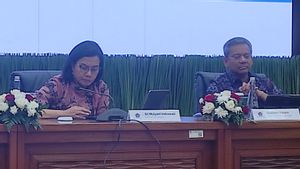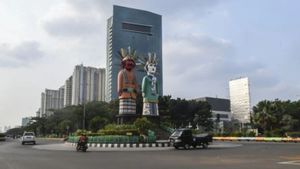
JAKARTA - University of Indonesia Criminal Law expert Dr Eva Achjani Zulfa said that confiscation and confiscation in the Criminal Procedure Code are different terms. The reason is that the Attorney General's Office as law enforcer must be careful in carrying out these two efforts in the context of recovering assets resulting from criminal acts of corruption.
This statement was conveyed by Eva in response to the polemic of abuse of power by law enforcement in the seizure of assets in the Jiwasraya-Asabri case which was allegedly reckless.
"Confiscation and confiscation in the Criminal Procedure Code are different terms, the actions are also not the same between confiscation and confiscation," Eva said in a webinar entitled Abuse of Power Behavior under the guise of Law Enforcement last weekend, quoted Tuesday, August 3.
According to him, the confiscated goods are goods related to criminal acts, goods resulting from criminal acts, goods used for a crime, or goods directly related to criminal acts.
"Well, apart from that, items that are not directly related, that have nothing to do with and are not used for a criminal act, which are not the result of a criminal act, cannot be confiscated. to look for evidence of a crime," he said.
He emphasized that investigators should verify or classify in detail an item so that it can be known with certainty whether the item is related or not in a crime.
"I think, in this case (Jiwasraya-Asabri) the act of classifying or verifying assets does not work. Even though the investigation should not only be an investigation to prove the elements, but also protection by them as a state tool that protects the rights of the people who are victims of the system. For this reason, investigators are obliged to code or sort out confiscated goods or assets," said Eva.
"So if it is known that there are goods belonging to third parties which are later confiscated, they should be returned immediately to their owners, this is related to the rights of property in human rights, namely the right to own something and use it, including the right to buy or sell something," he added.
Eva also criticized the use of Article 45 of the Criminal Procedure Code which became the basis for the Attorney General's Office to auction off a number of assets allegedly related to the Asabri case. He said, the auction could be conducted once with the permission of the judge but also with the permission of the defendant or his attorney.
"Keep in mind that the Criminal Procedure Code limits that what can be confiscated is limited to goods that can be proven to originate from or are closely related to crime (corruption)," he said.
Meanwhile, the attorney for WanaArtha's customer, Palmer Situmorang, said that the prosecution's investigation into the Jiwasraya case had an agenda.
"I see that there is an agenda, both consciously and unconsciously by the prosecutor's investigators, such as the euphoria of wanting to pursue targets in the public. 'Oh, we have confiscated many, many, even arrogantly they say there is no need to look for fees or for money. cover the cost of the state for the losses collected," Palmer said.
He also considered that the prosecutor's law enforcement was no longer able to sort out the assets of the suspect or defendant and which were not. According to him, the first thing the investigators violated was the confiscation of the clients' assets with the involvement or knowledge of the account holder.
"Even now, until the court's decision does not involve the account holder at all, even though it is mandatory! The Prosecutor's Office only asks for approval from the OJK. This method clearly violates the Criminal Code. .
Palmer added that Article 19 of the Anti-Corruption Law Number 31 of 1999 clearly and clearly states that evidence that does not belong to the suspect is not subject to confiscation.
"Then the prosecutor forced to be confiscated, it was clear there was another violation. At the prosecutor's office there was a violation, in the court there was a violation. Because this is a criminal case, the truth must remain the material truth. The truth must not be sabotaged," he stressed.
"This is a bit odd and extraordinary show and very uneducational because there are many facts that are hidden in my opinion and have even damaged the justice system. in 1985, it has even been renewed in the following years. So the Prosecutor may not carry out this execution as long as there is still a lawsuit, "concluded Palmer.
The English, Chinese, Japanese, Arabic, and French versions are automatically generated by the AI. So there may still be inaccuracies in translating, please always see Indonesian as our main language. (system supported by DigitalSiber.id)












